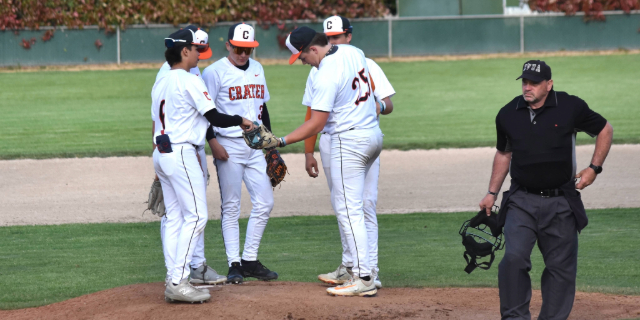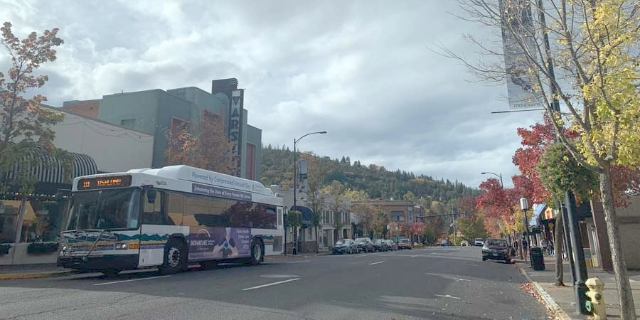GUEST COLUMN: Oregonians are gambling away billions
Published 9:00 am Monday, March 24, 2025
When it comes to addictive behaviors, gambling is one of the most ubiquitous – and yet also among the most undertreated and underrecognized.
From the stock market to cryptocurrency to memecoins to bingo to sports betting — and even elections—gambling is embedded into Americans’ lives. Video games, social media, and phone apps now expose even young, developing brains to gambling behaviors in ever-increasing, often undetected ways.
This normalized, ongoing access builds potentially addictive behavior from childhood through adolescence and across adulthood. Estimates indicate around 88,000 Oregonians meet the diagnosis for gambling addiction, with another 180,000 Oregonians currently at risk for developing the addiction, yet Oregon’s Problem Gambling Services treated only 796 people in FY22-23 (the most recent year for which data is available).
Trending
For decades, state governments have viewed gambling as an instant ticket to increased revenue. But the means by which people could legally gamble remained limited until a 2018 Supreme Court decision allowed states to authorize sports betting.
The following year, Oregon Lottery launched Scoreboard, a betting app that allowed Oregonians online access to sports gambling. The capacity of the app was soon overwhelmed by the millions of bets being placed. To provide “a better user experience” (a troubling term when ease-of-use can drive addiction), in 2022 Oregon replaced Scoreboard with DraftKings, an app owned by a publicly traded company with national reach.
The availability of these state-promoted sports betting apps has had irrefutable effects: In October 2019, when Scoreboard first became available, individual Oregonians gambled $5.6 million on sports-related wagers. By December of 2024, Oregonians were wagering over $90 million a month on sports.
The cumulative total spent as of March 2025 is over $2.7 billion. That’s just from Oregonians, just on sports betting.
Despite the increasing ease with which people can now gamble, the two biggest barriers to addressing the issue remain fairly constant: identifying when gambling has become a problem and finding counselors who are trained to treat it effectively.
Devastating though it can be, problem gambling often persists because it can remain hidden more easily than some other addictions. As one physician who specializes in treating addictions notes, “gambling challenges our usual assumptions about addiction and risk,” because “its harms extend far beyond the most severe cases.”
Trending
As with all addictions, we need more prevention and early intervention for problem gambling. Because gambling is built into so many online games and apps, people of all ages need education about how to “play” safely and how to recognize and respond to early signs of problem gambling.
Aspects of treating problem gambling can be similar to treating other addictions, but treatment also requires gambling-specific approaches. Gambling counselors often need to help clients recognize myths about gambling; understand cultural ideas around risk, luck, and skill that can influence gambling behavior; and address pressures around financial success and security that can contribute to continued gambling.
Because problem gambling can impact the financial, emotional, and even physical well-being of an entire family, treatment includes family members whenever possible, an approach that helps with risk mitigation and increases success rates.
Lewis & Clark’s Problem Gambling Services works to meet this immense need by providing free in-person and telehealth treatment to Oregonians.
The program trains new mental health counselors to use approaches from individual therapy, marriage and family therapy, and addiction treatment to meet the specific needs of people affected by problem gambling. Now, through a new partnership with Oregon Health Authority, Lewis & Clark is also training providers in other parts of the state, including providing the clinical supervision they need to become Certified Gambling Addiction Counselors.
The Oregon Lottery’s current advertising slogan is “When you play, Oregon wins.” But too many Oregonians are still losing too much.
Currently, the Oregon Lottery contributes about 1% of their total revenue to problem gambling awareness and treatment. The provider training, counseling services, peer mentor services, and other supports made possible by this funding is extremely important.
But as access to addictive gambling opportunities anytime, anywhere increases, devoting 1% of revenue is not enough. Oregon needs to invest in more statewide efforts like the OHA/L&C partnership, if we want to play fair and ensure that all Oregonians win.
Kate Madden is the interim director of Lewis & Clark’s Problem Gambling Services clinic, an adjunct faculty member in the Lewis & Clark Graduate School of Education & Counseling’s Professional Mental Health Counseling program, and a licensed professional counselor.









